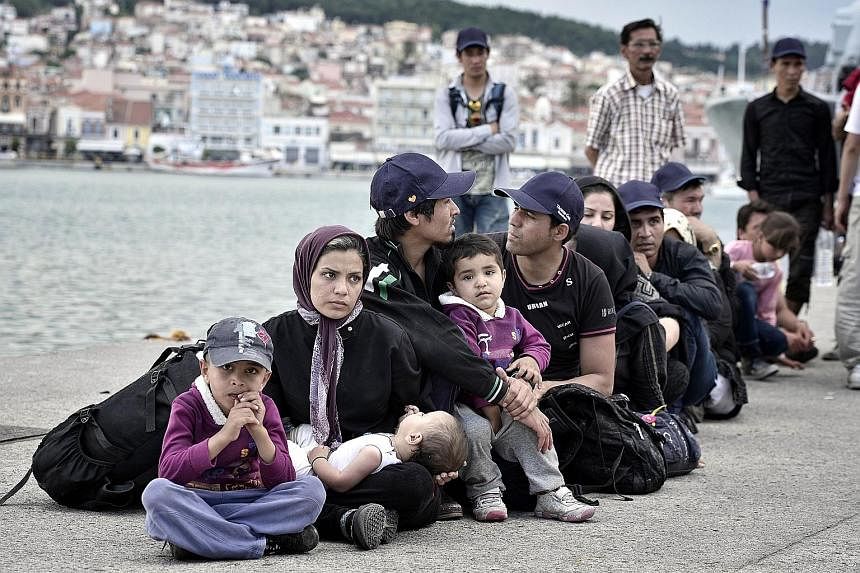BRUSSELS - Fractious European leaders argued into the early hours yesterday over how to handle a migrant crisis in the Mediterranean, agreeing on a plan to share out the care of desperate people fleeing war and poverty in North Africa and the Middle East.
Determined not to be dragged into negotiations over Greece's debt debacle at their summit in Brussels, leaders instead found themselves sparring for seven hours about whether to take in 40,000 Syrian and Eritrean asylum seekers now in Italy and Greece, and another 20,000 people currently outside the European Union.
They eventually agreed on a voluntary scheme, sticking to the 60,000 number but granting an exclusion for Hungary, which earlier described the plan as absurd, as well as for Bulgaria, one of the EU's poorest countries.
"It was a very intensive debate," German Chancellor Angela Merkel told reporters after the meeting ended, describing the migrant crisis "as the biggest challenge I have seen in European affairs in my time as chancellor".
That is a striking statement, considering the euro zone debt crisis and the confrontation with Russia during her decade in power.
Expressing frustration, Euro-pean Commission president Jean-Claude Juncker described the plan as one of "modest ambition" and said at one point in the meeting he had told EU leaders he did not care about objections to the plan's underlying methodology.
"We have to find out if the system works. It doesn't matter if it is voluntary or mandatory, it is whether it can help 60,000 refugees," he told a news conference yesterday.
However, the EU's chief executive had been hoping to set a precedent for Europe-wide action that limited national opt-outs.
The summit became so tense that a speech by British Prime Minister David Cameron served as an interlude to cool tempers, with the much-awaited address to pitch for a new deal for Britain in the EU reduced to barely 10 minutes.
While the political deal was a breakthrough, implementing the plan still faces hurdles. The criteria to share migrants among member states must be decided by the end of next month.
"There's much, much more argument to come," said one senior EU diplomat. "I don't yet see the full way forward."
AGENCE FRANCE-PRESSE

